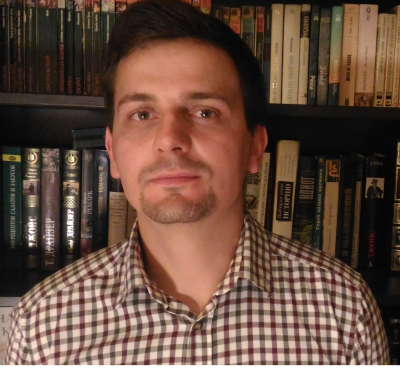You are here :
- EUTOPIA website
- Home
- News
- News section
- News
SIF 3rd Cohort Fellows - Sergey Malinovskiy, Pompeu Fabra University Barcelona

Curriculum Vitae
- Education
October 2013: PhD in Political Science, Higher School of Economics, Moscow, Russia
September 2007-June 2009: Master’s degree in Investor Relations, Higher School of Economics, Moscow, Russia
September 2003-June 2007: Bachelor of Political Science, Higher School of Economics, Moscow, Russia
- Training
November-December 2019: Visiting Scholar, Graduate School of Education, University of Pennsylvania (USA)
September-November 2019: Fellowship, Graduate School of Education, Stanford University (USA)
November 2015-May 2016: Executive program, Leadership and Change for Global Research Universities, Skolkovo International School of Management (Russia)
- Experience
August 2022-June 2023: International Consultant, World Bank Group (Education Global practice)
International consultant for Central Asia Higher Education regional project.
Leading a team of researchers to prepare a report and a roadmap for the development of Central Asia higher education area.
From December 2018: Researcher, Institute of Education, HSE University (Russia)
Conducting research projects on inequality in higher education and the transformation of tertiary education.
Leadership in two cross-country comparative studies on the political economy of higher education and access to higher education for students with disabilities.
Participating in seven consultancy projects on university development.
September 2015-December 2021: Deputy Director, Institute of Education, HSE University (Russia)
Strategic planning, performance monitoring and organisational development.
Business development and fundraising.
International cooperation and academic reputation promotion.
Coordination of applied research projects.
- Publications/Research achievement
Research Project:
Equity of Access to Higher Education and Intergenerational Educational Mobility in Welfare State Regimes
Education is historically the welfare states’ mandate. However, higher education is commonly perceived to differ from other social policies. Because of massification, higher education produces enormous consequences for the distribution of skills, income, and wealth within the political economy of contemporary welfare states. Although enrollment in higher education has increased, university education has not become more evenly distributed in societies.
The goal of the research is to contribute to an understanding of how differentiation of educational opportunities in tertiary education relates to the context of modern welfare states. The study draws on the framework of welfare state regimes and сross-country comparative data to scrutinize how political economy of contemporary welfare states shapes the conditions (institutional design) and outcomes (accessibility) of higher education distribution in society.
Three questions will be addressed:
- What are the patterns of institutional design of higher education for different welfare state models, why do they differ and how do they affect inequality in higher education distribution?
- How does political partisanship relate to accessibility of higher education within varying political economy context (economic coordination mode, redistribution patterns in social policy)?
- How can outcomes of higher education distribution impact redistributive preferences and popular perceptions of educational policy alternatives?
This study contributes to scholarly research in several ways. First, this study attempts to conceptualize higher education as a welfare good in addressing long-standing issues of educational inequality. Second, the ambition of this research is to zoom into this black box, and to bridge the macro-level context of the welfare state with the meso-level of higher education institutional design and the micro-level individual predictors. Finally, the study is to investigate not only advanced European economies but also transitional countries, which with few exceptions were not considered in this context. The results of the study can be useful for designing policy interventions to improve participation in higher education and equity of access, taking into account the macro-level context and the national distributional model.


